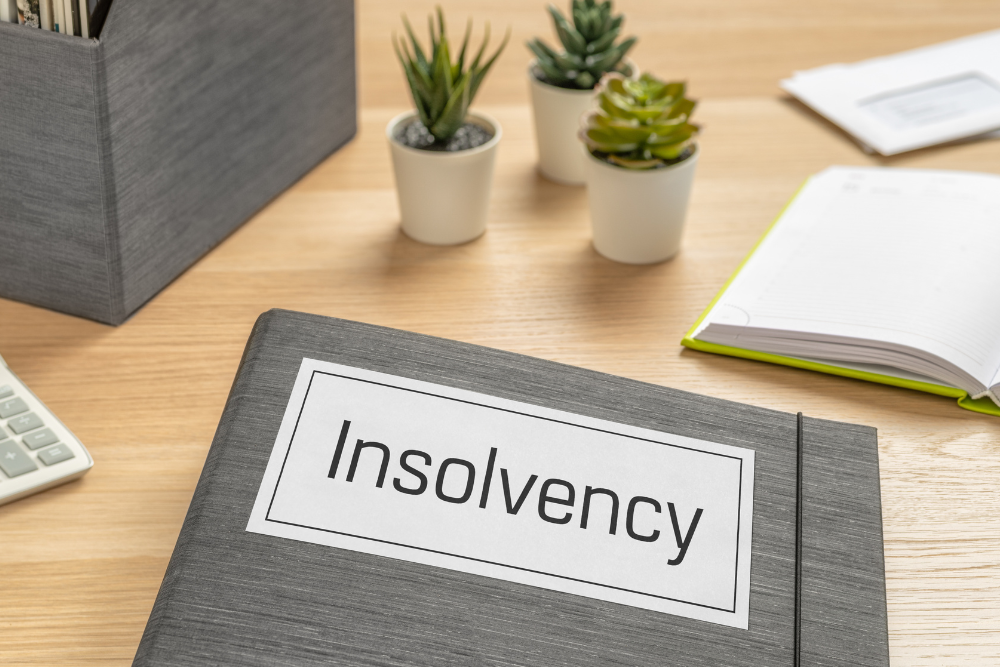A Biased View of Insolvency Practitioner
Table of Contents7 Easy Facts About Insolvency Practitioner ShownThe Best Guide To Insolvency Practitioner3 Simple Techniques For Insolvency PractitionerSome Ideas on Insolvency Practitioner You Should KnowNot known Incorrect Statements About Insolvency Practitioner
Whether or not you require to make use of a bankruptcy expert (IP) to liquidate your firm depends upon various aspects. While engaging an insolvency professional for all types of liquidation is not a lawful demand, doing so can typically streamline the procedure and ensure conformity with lawful needs. Liquidating a firm is a crucial decision that features substantial effects.
It is a procedure used when a business does not have any type of financial institutions, or all of their financial institutions can be repaid completely with statutory passion. Understanding the different sorts of insolvency processes can aid you identify the very best strategy for your company's liquidation or various other formal insolvency procedures itself.
This is compulsory in order to comply with lawful demands - Insolvency Practitioner. This is since IPs have the essential certifications and experience to make sure that the liquidation process is performed in accordance with all suitable legislations and regulations. By involving a qualified bankruptcy specialist, you can have comfort recognizing that your business's liquidation process will certainly be taken care of skillfully and in conformity with the relevant legal demands
Not known Details About Insolvency Practitioner
The bankruptcy professional is assigned as a liquidator and is in charge of taking care of the company and liquidator's debts impressive liabilities and possessions. This procedure involves selling the firm's properties and dispersing the profits to creditors. Upon completion of the procedure, the company is eliminated from the register at Business House.
Falling short to do so can cause personal obligation for the business or supervisor for the lender's financial debts. Volunteer liquidation, that includes Financial institutions' Voluntary Liquidation (CVL) and Members' Voluntary Liquidation (MVL), is initiated by the firm's supervisors and investors when they can no longer pay their debts. In a CVL, the insolvency practitioner is marked as the liquidator, in charge of taking care of firm financial debts and all firm properties.

The 8-Minute Rule for Insolvency Practitioner
By analyzing the knowledge and experience of possible insolvency specialists, you can guarantee that you choose a specialist that has the required credentials to manage your firm's liquidation process effectively. While bankruptcy practitioner-led liquidation is usually one of the most appropriate strategy for business facing insolvency, there are alternate strategies to think about, such as striking off and partial liquidation.
It's crucial to assess all readily available choices prior to choosing on the following ideal remedy or course of action for your business. Striking off companies' signs up is a more uncomplicated and affordable means to close inactive or small companies without any financial obligations or properties. To strike off a company, its name is eliminated from the Business Residence register by submitting form DS01.
Prior to choosing striking off, it's vital to consider the click this advantages and downsides of this approach and think about whether it's the ideal selection for your business. Partial liquidation is another alternative to insolvency practitioner-led liquidation, where a firm sells off certain properties and liabilities while continuing to operate with the staying properties and responsibilities.
A Bankruptcy Practitioner will be able to recommend you of the very best program of action to take and make sure that whatever runs efficiently. It is not feasible to liquidate a firm without a liquidator. Appointing an authorised insolvency practitioner is essential for the process of voluntary liquidation to begin.
Some Ideas on Insolvency Practitioner You Should Know
It is possible to shut and liquidate your firm without making use of a liquidator, given your business is solvent and you fulfill the eligibility needs to dissolve or liquidate it. However, if your firm is financially troubled, you may be called for to utilize a liquidator and begin official bankruptcy procedures. Below are a have a peek at this website few other helpful articles regarding business liquidation in the UK:.
Remaining in a setting where you're unable to pay your firm's creditors is incredibly stressful. In an effort to stay clear of enhancing the degree of financial obligation, several companies attempt to negotiate straight with their financial institutions and agree to a casual setup. If the debt is rather tiny and owed to one creditor, and the lender is being participating, becoming part of an casual financial obligation setup is probably the finest remedy, rather than browsing the web for 'a bankruptcy practitioner near me'.
On the various other hand, if there are several lenders and the degree of debt is large, financial institutions may not be so ready or participating. To avoid liquidation or personal bankruptcy, it is better to hire an insolvency practitioner to prepare formal proposals and negotiate with lenders in your place.
Insolvency Practitioner - The Facts
Whilst it is a means to handle financial obligation, there are considerable dangers involved with this kind of financial debt plan - Insolvency Practitioner. If a lender is prepared to become part of an informal setup (IA) wherein the borrower has concurred to make normal, if reduced, settlements to pay back the debt, it is very important to stay with the agreement

Therefore, the financial institution is within their legal rights to back out of the contract and petition the courts for your firm to be liquidated at any kind of time. A formal plan that has been proposed by an insolvency professional on your part, and agreed by a lender, provides a much safer choice.